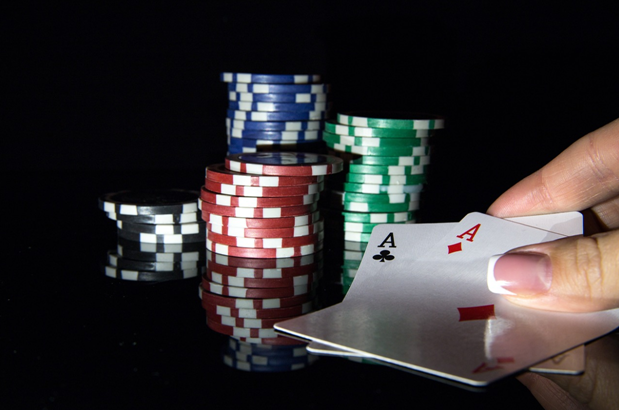5 Mistakes Bettors Make When Misinterpreting Casino Odds

Casino odds play an important role in making informed decisions while gambling. They define the probability of winning and the potential payout for each bet. Hence, knowing how odds work can help bettors avoid unnecessary risks and maximize enjoyment.
Yet, many bettors misinterpret casino odds. This often happens because the mathematical side of games can seem overwhelming or because assumptions get in the way of logical reasoning. This leaves bettors to make common mistakes that affect betting outcomes, leaving them frustrated or financially stretched.
In this post, we’ll look at five common mistakes bettors make when misinterpreting casino odds and how to avoid them.
Ignore Variance In Short-Term Results
Short-term outcomes often mislead bettors into thinking they’ve discovered a pattern. For instance, a few quick wins in a slot game might create the impression that the machine is “hot” or lucky, leading to overconfidence. This misconception occurs because bettors focus on immediate results rather than the broader statistical likelihood of outcomes.
The consequences can be significant. Bettors who rely too much on short-term results might lose more money than expected or fail to recognize the natural ups and downs inherent in casino games. It could also encourage risky behaviors, such as chasing losses under the false impression that a win is just around the corner.
To avoid this mistake, focus on the long-term probabilities of any game. Many casinos offer educational tools or demo games to help players better understand variance. Take New Jersey Casino Offers, for example. Apart from bonuses, they provide free spins that allow players to familiarise themselves with games without the risk of losing money.
Confuse House Edge With Payout Odds
Many bettors think the house edge and payout odds are the same. The house edge refers to the casino’s built-in advantage over players, while payout odds indicate the ratio of how much a bet pays out compared to the wager amount. Failing to understand this distinction can lead to poor betting decisions.
This confusion often results in unrealistic expectations. Bettors may assume a game with higher payouts is more favorable without accounting for the house edge. For example, a game offering a 35:1 payout might have a much higher house edge than one with a smaller payout.
Understanding both terms is essential. Take time to learn the house edge of games you enjoy. Many resources explain this in simple terms, helping you compare games and decide which aligns better with your goals.
Overvalue Long Odds Bets
Bettors are often drawn to bets with long odds, enticed by the promise of hefty payouts. Long odds indicate a low probability of winning, yet the size of the potential reward often overshadows this reality. This tendency is especially common with progressive jackpots or exotic bets in table games.
Overvaluing long odds can lead to frequent losses and frustration. Bettors might find themselves chasing big wins only to lose money repeatedly. This approach not only drains your bankroll but can also diminish the overall enjoyment of gambling.
To avoid this, diversify your betting strategy. Combine smaller, safer bets with occasional high-risk wagers for balance. This method mirrors the 80/20 principle, where 80% of your bets focus on safer, more consistent outcomes, and the remaining 20% are reserved for riskier bets with the potential for higher rewards. This approach keeps gameplay exciting while giving you a more sustainable way to manage your funds.
Misread Probabilities In Games Of Chance
Casino games rely on probabilities, but these numbers can be tricky to interpret. A common mistake is assuming all outcomes are equally likely when, in fact, games are designed to favour certain results. For example, in roulette, the inclusion of the zero(s) gives the house an edge, which changes the probability of winning.
The consequences of misreading probabilities can be costly. Bettors who don’t account for this might overestimate their chances of winning or create strategies based on flawed assumptions. This can lead to repeated losses and a lack of trust in the games.
Avoid this mistake by learning the basic rules and odds of each game. Many casinos publish this information, allowing players to make informed decisions. Practice games are also a good way to test your understanding before betting real money.
Rely On Gambler’s Fallacy
The gambler’s fallacy is the belief that past outcomes influence future results in games of chance. For example, assuming that a roulette wheel is “due” for red because the last several spins landed on black is a classic example of this fallacy. This misconception is famously known as the Monte Carlo fallacy, named after an incident at the Monte Carlo Casino in 1913, where black came up 26 times in a row, leading players to make massive losses by betting on red. The reality, however, is that each spin is independent and unaffected by previous results.
Relying on this flawed belief can lead to poor betting strategies. Bettors might increase wagers based on false expectations, risking more money than planned. This mindset also detracts from understanding the true mechanics of the game.
To overcome this, remember that each outcome is independent. Focus on the odds presented for each bet and treat every round as a fresh start. Education and experience are the best tools for breaking free from this misconception.
Final Thoughts
Misinterpreting odds often leads to unrealistic expectations and unnecessary losses. While this post highlights five frequent errors, there’s always more to learn about gambling strategies. For personalized advice, consider exploring additional resources or seeking guidance from experts in the field.





